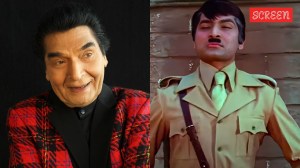North Korea signals easing tensions with South
North Korea said it would send a high-ranking delegation to the South to mourn former President Kim Dae-jung in the latest sign of easing tensions with the outside world.
North Korea said on Thursday it would send a high-ranking delegation to the South to mourn former President Kim Dae-jung in the latest sign of easing tensions with the outside world. In another indication the defiant state may be softening,New Mexico Governor Bill Richardson said North Korean diplomats he met in Santa Fe on Wednesday had sent good signals.
Kim,who died on Tuesday aged 85,was awarded the 2000 Nobel Peace Prize months after brokering the first summit between the leaders of the rival Koreas. North Korea’s KCNA news agency said leader Kim Jong-il had approved the Aug. 21-22 visit,headed by close aide Kim Ki Nam,secretary of the Central Committee of the ruling Workers’ Party.
The delegation for the state funeral on Aug. 23 will be the first high-level visit to the South by North Korean officials in almost two years.
Kim Jong-il had earlier sent a message of condolence to the former president’s family,praising his efforts to reunite the two Koreas,divided since the end of World War Two.
But the North Korean media has kept up its onslaught against the government of conservative President Lee Myung-bak who,since taking office 18 months ago,has cut off once flowing aid to the impoverished North and tied it to nuclear disarmament.
The decision to send the delegation is the latest in a series of conciliatory steps following months of military grandstanding by North Korea,including a nuclear test in May,that have deepened the hermit state’s isolation.
However,North Korea has a long history of sharp changes of tack in its diplomacy and few analysts believe it has any intention of giving up its dreams of building a nuclear arsenal.
They also note it appears to be facing greater economic problems at home and that international sanctions may be starting to take their toll.
Pyongyang also continues to reject a return to negotiations with regional powers on its atomic weapons programme.
U.N. SANCTIONS
Philip Goldberg,the U.S. coordinator for the U.N. resolution aimed at North Korea’s nuclear and missile tests,was in Singapore at the start of an Asian tour to strengthen the measures.
If there is a return to the six-party talks,that’s a good thing. Those are the kinds of issues that are very much associated with our presence here and with our continuing attempts on implementation of the resolution. It is a means to an end,Goldberg told reporters.
North Korea first signalled a change of tactics earlier this month when it released two jailed American journalists following a visit to Pyongyang by former U.S. President Bill Clinton.
Richardson,who met representatives from the North Korean mission to the United Nations at their request,said Pyongyang hoped the Clinton visit — the most senior U.S. envoy to visit in almost a decade would lead to a thaw in relations.
The North Koreans are sending good signals,that they’re ready to talk directly to the United States,he said on CNN. They felt that the President Clinton visit was good,that it helped thaw relations,make them easier.
The United States,however,wants Pyongyang first to return to six-party nuclear disarmament talks.
North Korean leader Kim also this month met the head of South Korea’s powerful Hyundai Group,a major investor in the North.
That meeting helped win the release of a Hyundai worker detained since March and agreement to resume tourism to the North and reunions of families separated by the 1950-53 Korean War.
South Korea’s Red Cross said it hoped to meet their North Korean counterparts later this month to discuss the reunions.
The two Koreas remain technically at war across one of the world’s most militarised borders because the truce that ended the Korean War was never replaced with a peace accord.
Adding to the flurry of diplomatic activity around the North,one leading South Korean daily reported that China’s chief nuclear envoy had ended a three-day visit to Pyongyang.
It gave no details of the visit by Wu Dawei but as the North’s only major ally,China,also host of the six-party talks,is one of the few powers with much influence over Pyongyang.



- 01
- 02
- 03
- 04
- 05



























